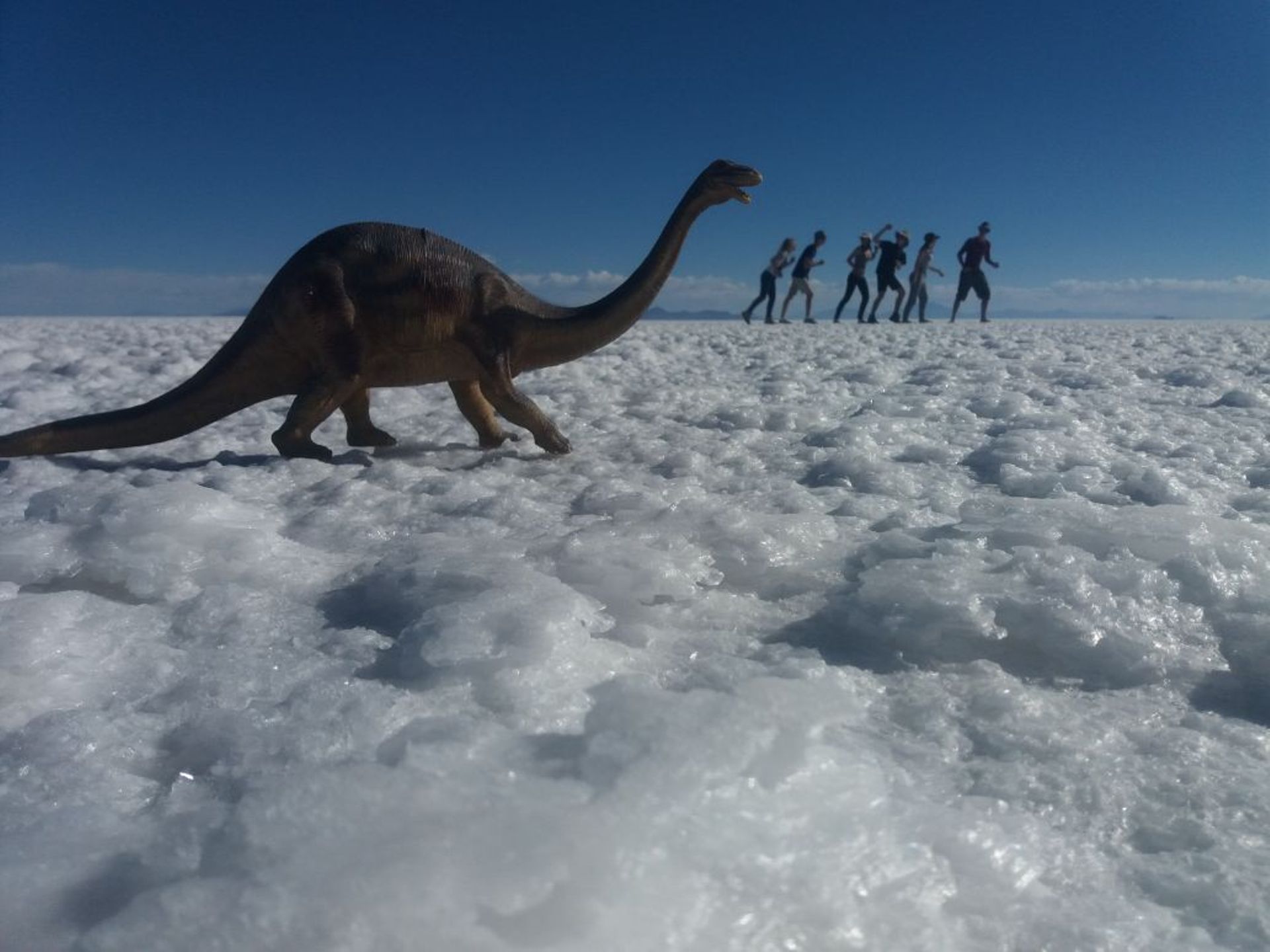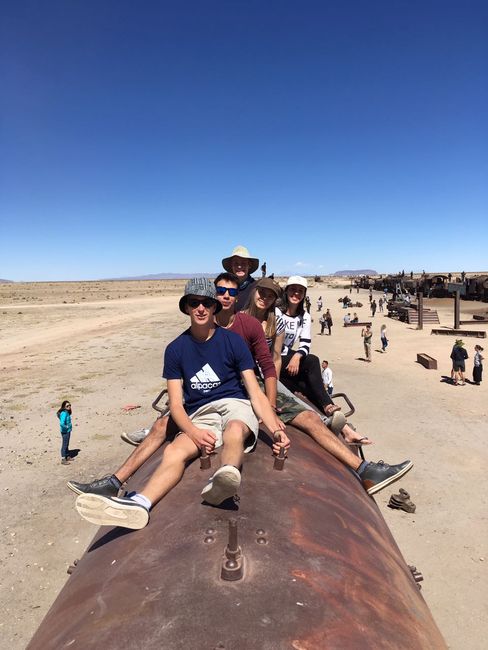Day 34 - 39 / Arequipa
ထုတ်ဝေခဲ့သည်။: 12.04.2018
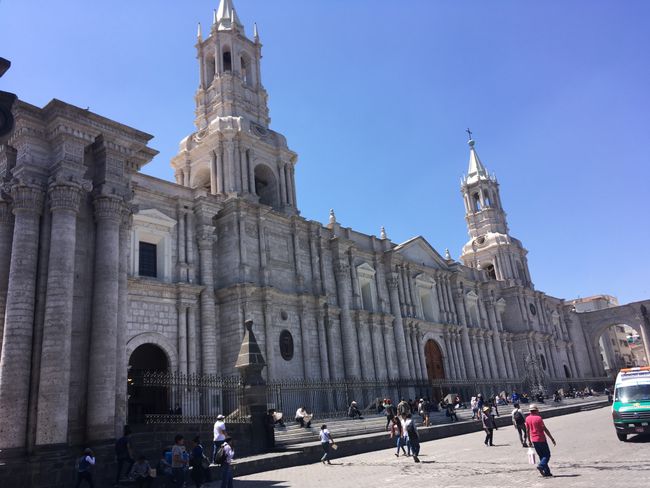
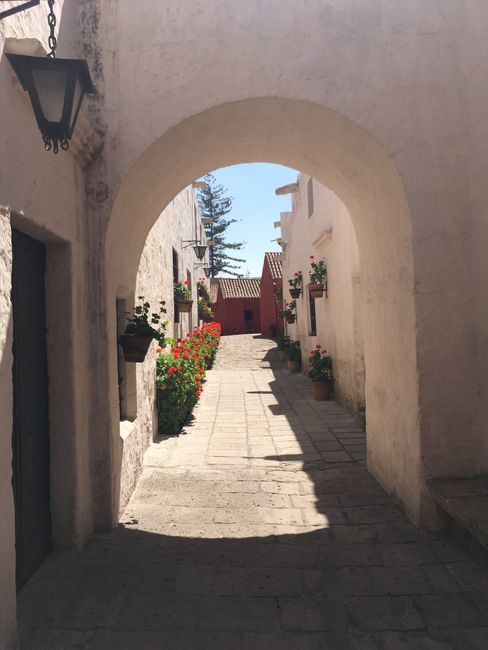
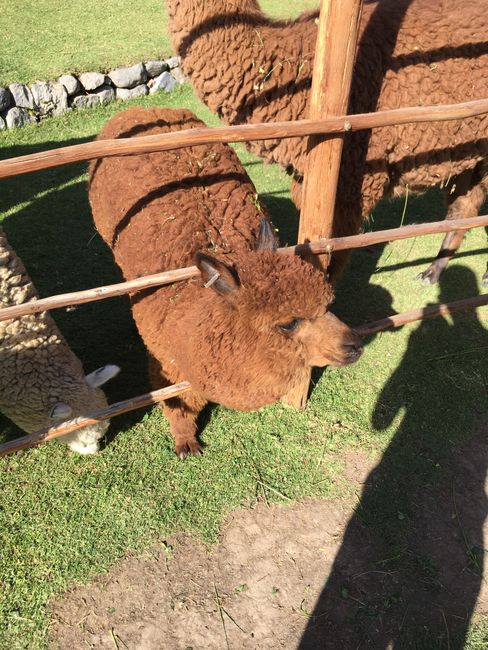
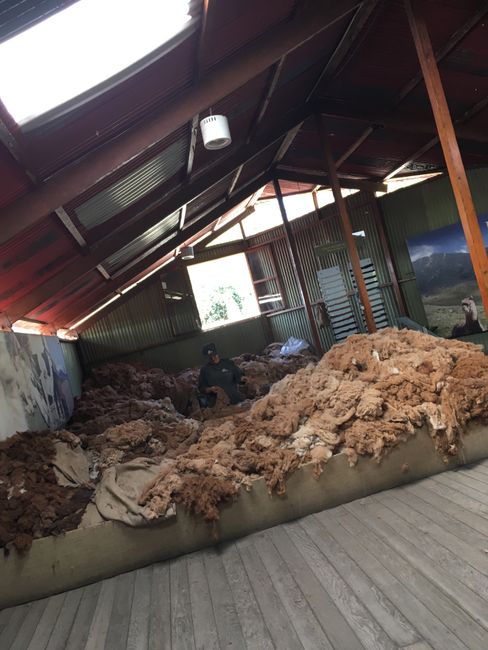
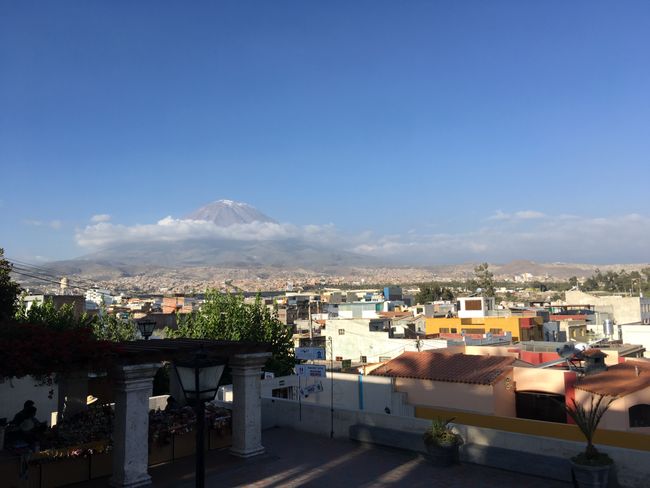
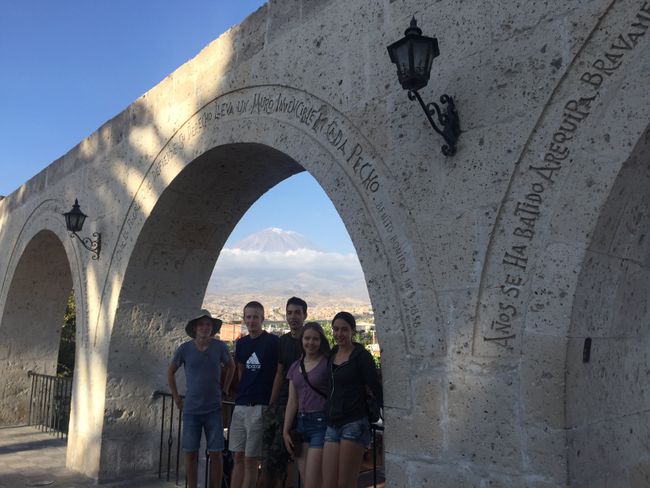
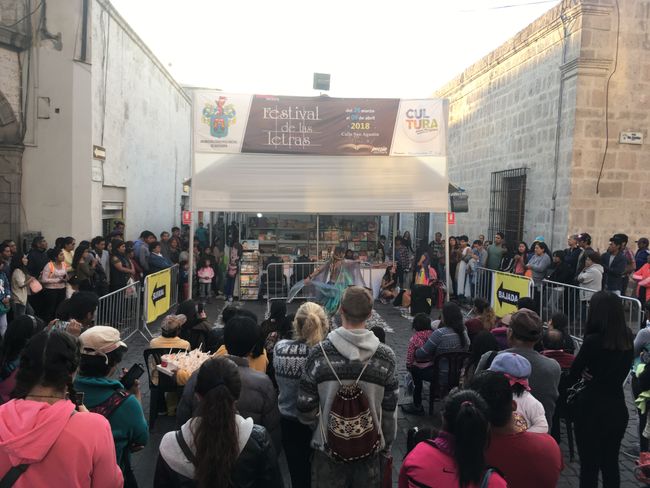
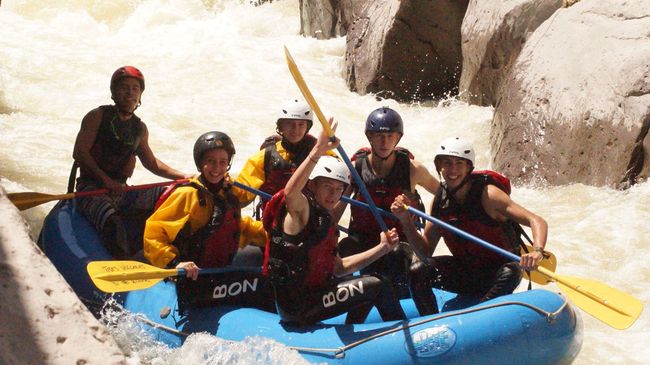
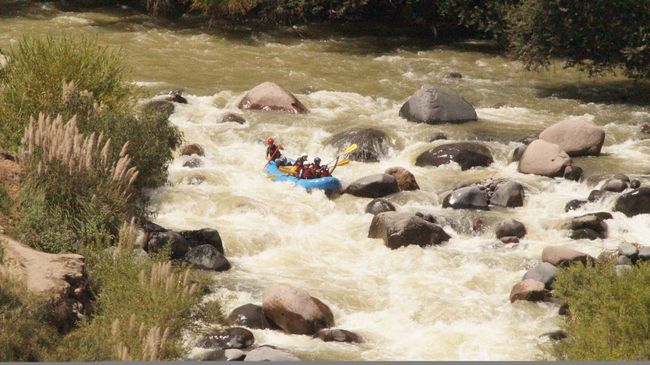
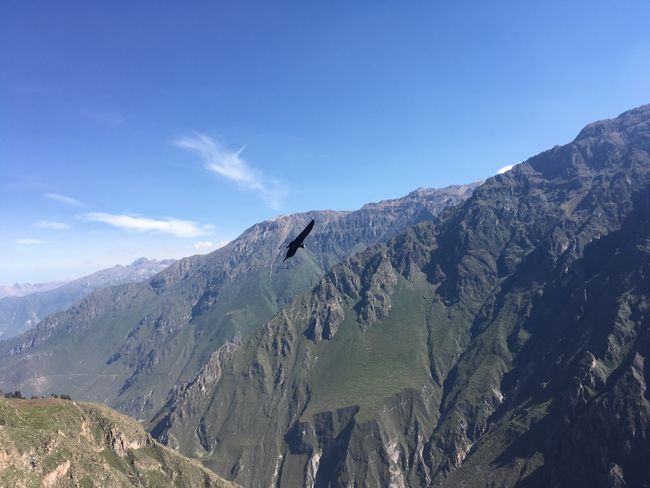
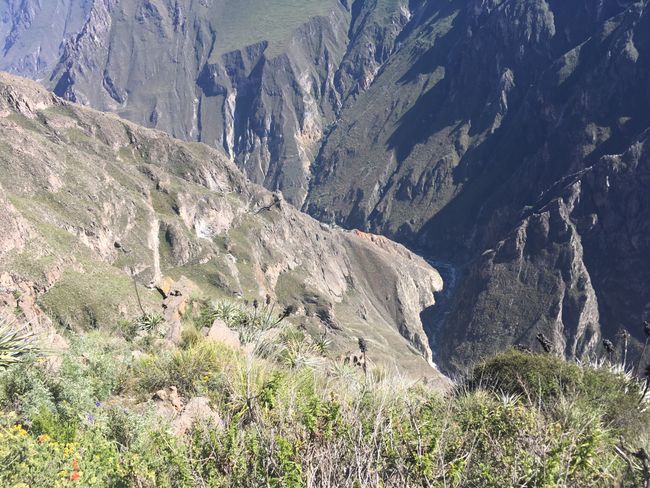
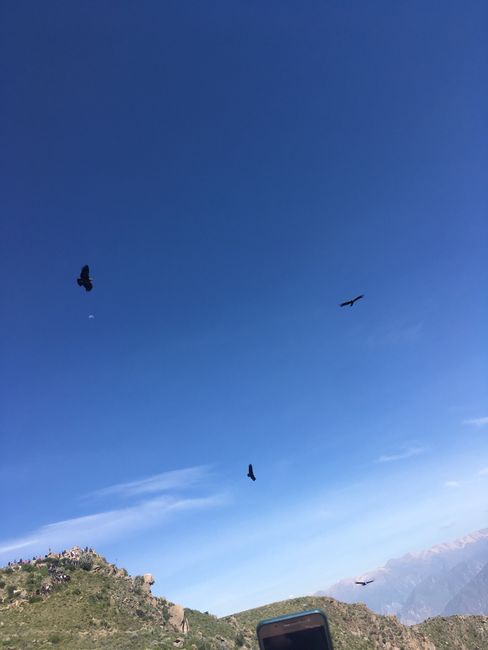
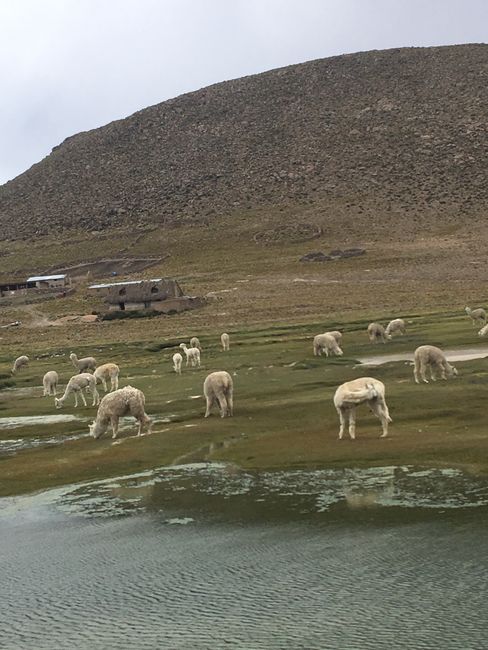
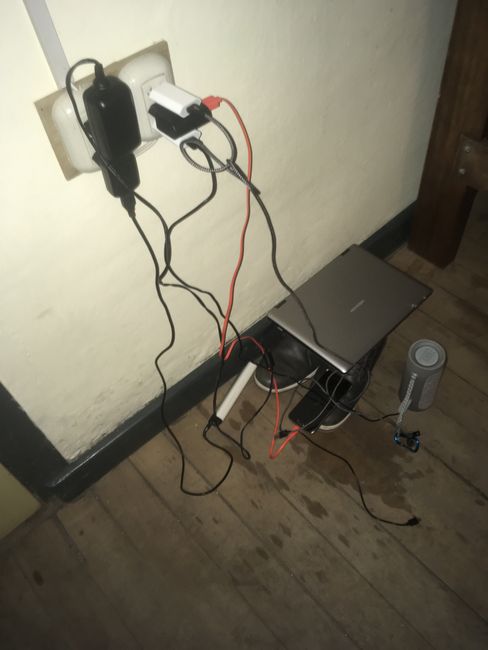
သတင်းလွှာကို စာရင်းသွင်းပါ။
We arrived in the white city of Arequipa on 02.04.2018. It gets its name from the many white buildings from the Spanish colonial period. The cathedral, which extends along one side of the Plaza de Armas, is also completely white. In addition, there are many mountains and volcanoes up to 6000 meters around Arequipa, most of which are covered in snow.
Our travel group grew to 5 people here on 03.04.2018, because Velina and Kiran joined us from Paraguay.
Together, we visited the Santa Catalina Monastery the next day, which has its own neighborhood. It is also said to be a city within a city. As under 21-year-olds, we only had to pay half price and immediately invested the money in a guide. She was small, from Peru, and spoke fluent German with an Asian accent. So far so good. From the 16th century until then, up to 200 nuns lived in the monastery, who had to stay there for their entire lives. Even today, there are still 20 nuns living there, although not under as strict conditions as before, our guide explained. It used to be considered a 'luxury monastery', which is why there were mainly noble or very wealthy Spanish women. The streets within the area are very beautiful, as are the paintings and pictures that still hang there.
On Thursday, we went rafting on the Chili River near Arequipa. We were given protective clothing, briefed, and had to sign that the people cannot be held liable for injuries or our death. Then we were already on the ice-cold river. It was certainly faster and wilder than our leash from Hanover and had many large stones in the middle of the riverbed, which our guide mostly managed to steer around well. Except for one time, when our boat got stuck between two stones for a while. In precarious situations, we were given the command 'Piso' (Floor), where we should quickly move away from the edge of the boat and sit down.
On Saturday morning at 3:30 a.m., we were picked up for the Colca Canyon Tour that we had booked. It is considered the 2nd deepest canyon in the world and as a special feature, many condors fly there, which are now endangered. Our bus stopped at various viewpoints for the surrounding volcanoes, for condors, and for llamas, where we each had time for pictures. At Cruz del Condor, the birds flew over the mass of tourists over and over again, mostly letting themselves be carried by the updraft of the canyon. It almost seemed as if the condors were vain and enjoyed the admiration of the many people.
On Sunday morning, we continued by bus to Puno, to Lake Titicaca.
~Viktor
သတင်းလွှာကို စာရင်းသွင်းပါ။
ဖြေ
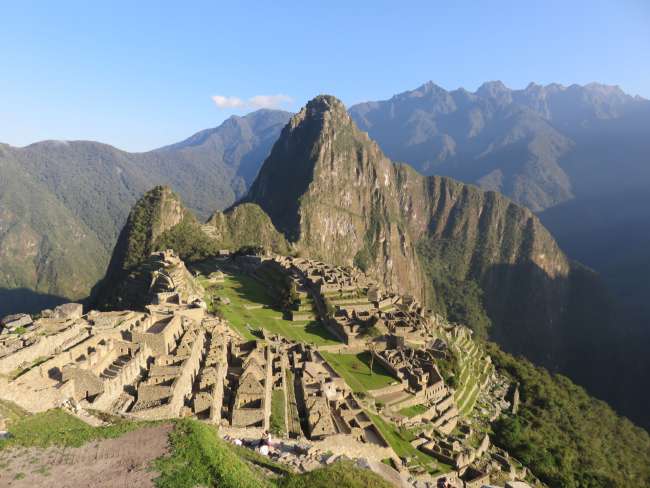
ခရီးသွားအစီရင်ခံစာ ပီရူး
